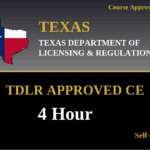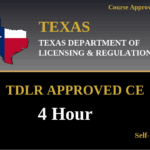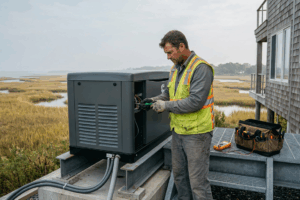
Texas Journeyman vs. Master Electrician: Key Differences
Journeyman vs. Master Electrician in Texas: What’s the Difference?
In the Texas electrical trade, the journey from apprentice to seasoned professional is marked by distinct milestones. For many, the goal is clear: to become a Texas master electrician, the highest level of individual licensure in the state. But what truly separates a proficient Journeyman from a Master? The difference is far more than just a title; it’s a significant leap in responsibility, authority, and career potential. Understanding the nuances of the journeyman vs master texas debate is crucial for anyone planning on upgrading electrician license texas. This journey is governed by the Texas Department of Licensing and Regulation (TDLR), which sets the standards for experience, knowledge, and professionalism that define each role.
The Foundation: The Texas Journeyman Electrician License
The journeyman electrician license represents a significant professional achievement. After completing thousands of hours of training as an apprentice, a journeyman is a skilled, hands-on tradesperson and the backbone of the industry.
- Experience Requirements: A Journeyman Electrician applicant typically documents 8,000 hours of on-the-job experience.
- Residential Wireman: This classification requires 4,000 hours and is limited to single-family and multifamily dwellings not exceeding four stories.
- Supervision: A Journeyman performs electrical work under the supervision of a Master Electrician and is not eligible to act as the Master of Record for an electrical contractor.
The Leap Forward: The Texas Master Electrician License
Achieving a Texas master electrician license is the pinnacle for an individual electrician. This license signifies that you have transcended the role of a skilled technician to become a true authority in the field.
The primary requirement is substantial experience: applicants must document 12,000 hours of on-the-job electrical experience. TDLR typically requires verification that the applicant has held a journeyman license for at least two years prior to applying. A Master Electrician is licensed to perform all types of electrical installations, supervise other electricians, and serve as the Master of Record, opening doors to leadership and entrepreneurship.
Key Differences in Scope, Responsibility, and Opportunity
1. Supervision and Project Management
A key difference lies in leadership. While a Journeyman works under a Master, a supervising master electrician is responsible for the work of all electricians on a job site. This includes technical oversight, scheduling, and ensuring adherence to budgets and timelines.
2. Business Ownership and Permitting
In Texas, an electrical contractor business must designate a Master Electrician as its Master of Record. This individual demonstrates the technical qualifications for the company and is responsible for permitting and code compliance. Journeymen cannot hold this designation.
3. Technical Expertise and Design
Masters are often involved in creating electrical plans, not just following them. They must have an advanced understanding of the National Electrical Code (NEC). For example, understanding how the 2023 NEC changes selective coordination for emergency system OCPDs is a hallmark of master-level expertise.
Navigating the Upgrade: The Master Electrician Examination
The final hurdle is the examination, which is significantly more challenging than the journeyman test. It focuses on:
- Advanced electrical theory and complex calculations.
- In-depth scenarios related to the NEC.
- System design and problem-solving.
- Specific 2023 updates, such as labeling switchgear, switchboards, and panelboards.
Ready to Upgrade to Master?
Prepare for the next step in your career with our advanced electrical courses and exam prep materials.
Frequently Asked Questions
A: A Master Electrician license is an individual certification of expertise. An Electrical Contractor license is a business designation that requires a Master of Record to operate.
A: TDLR evaluates out-of-state experience on a case-by-case basis. There is no automatic reciprocity that covers all states. Refer to the Texas Electrical License Reciprocity for details.
A: Yes. A wireman must typically document an additional 4,000 hours to become a Journeyman (8k total) before working toward the 12,000 total hours required for the Master classification.
Texas Continuing Education Courses
Explore our board-approved continuing education courses for Texas professionals:
View CE RequirementsTexas 2023 NEC changes (Part 1), Texas Safety & Laws
Texas 2023 NEC changes (Part 2), Texas Safety & Laws
Texas 2023 NEC changes (Part 3), Texas Safety & Laws
Disclaimer: The information provided in this educational content has been prepared with care to reflect current regulatory requirements for continuing education. However, licensing rules and regulations can vary by state and are subject to change. While we strive for accuracy, ExpertCE cannot guarantee that all details are complete or up to date at the time of reading. For the most current and authoritative information, always refer directly to your state’s official licensing board or regulatory agency.
NEC®, NFPA 70E®, NFPA 70®, and National Electrical Code® are registered trademarks of the National Fire Protection Association® (NFPA®)






